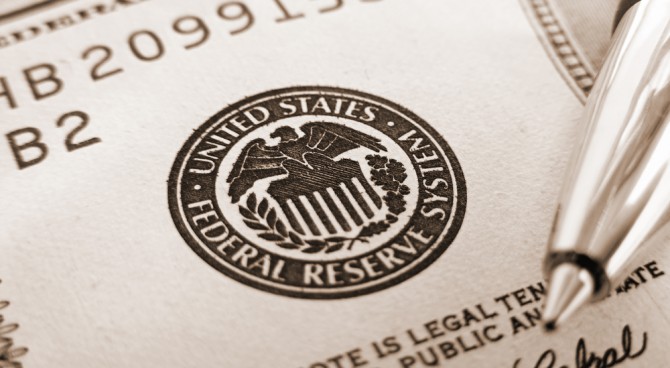The Biden administration wants to undo years of bipartisan consensus about antitrust regulation.
By Phil Gramm and Christine Wilson
April 3, 2022 5:05 pm ET
With major antitrust legislation headed to the Senate floor, it is important to remember that over the past half-century, a bipartisan consensus has existed that antitrust law and enforcement should be anchored in consumer welfare. This consensus, beginning in the 1970s, was founded on a bipartisan rejection of Progressive-era regulatory frameworks that harmed consumers, competitiveness and economic growth. In one of his first and most important executive orders, President Biden committed his administration to returning to those Progressive-era policies, which pick winners and losers, substitute government edicts for market forces, and bestow on unelected bureaucrats expansive power to engage in industrial policy.
The modern progressives who dominate the Biden administration have labeled themselves Neo-Brandeisians after Justice Louis Brandeis, who claimed that “the evils of excessive bigness are something distinct from and additional to the evils of monopoly.” Sen. Elizabeth Warren, who believes that only government should be big and powerful, has worked to ensure that committed progressives hold key levers of regulatory power in the Biden administration. Notable examples include Tim Wu, a special assistant to the White House National Economic Council; Lina Khan, chairman of the Federal Trade Commission; and Rohit Chopra, director of the Consumer Financial Protection Bureau.
These officials see the world through the lens of class warfare, as a zero-sum game. Like Progressives before them, they view the rule of law not as a cornerstone of liberty and democracy, but as an impediment to equality and the means by which the ruling class suppresses the masses. In their view, economics-based antitrust enforcement under the consumer-welfare standard drives this oppression. Sandeep Vaheesan of the Open Markets Institute, who has written academic papers with Ms. Khan, claims that an “antitrust enforcer anchored in consumer welfare is an antitrust enforcer anchored in anti-labor.”
While antitrust enforcement since the 1970s has sought to rise above politics by using economics-based analysis to measure consumer benefit, modern progressives reject the idea that antitrust enforcement is, and should be, apolitical. To them, economics isn’t a value-neutral discipline that guides sound decision-making. Matthew Stoller, who worked with Ms. Khan at the Open Markets Institute, believes “the point of economics as a discipline is to create a language and methodology for governing that hides political assumptions from the public.” To Ms. Khan, “all decisions are political insofar as government agencies are bringing them.”
Unlike most Americans, progressives view low prices as a problem, not a benefit. In July 2020, Mr. Wu waxed poetical about artisanal flour producers and lamented the commoditization of flour as “just an ingredient, the cheaper the better.” He attacked large flour producers for seeking “brute efficiency” and depressing prices. Should we now applaud that the price of flour has risen 11.6% in the past year?
The first Progressive attempt to regulate competition occurred in 1887, when Congress created the Interstate Commerce Commission. Real rail-freight revenues per ton-mile had fallen 17.7% from 1870 to 1890. The ICC banned price rebates, a mechanism overbuilt railroads had used to reduce prices. When trucks began to compete with railroads, the ICC brought trucking under its regulatory control in 1935. Airlines were regulated in 1938 when they began to compete with both.
The Sherman Act of 1890 instituted the progressive antitrust agenda economywide. During the 10 years before its enactment, steel, copper, petroleum and sugar all had higher output growth and faster real price declines than in the 10 years after its passage—making it hard to claim that even at its inception, Progressive-era regulation quantifiably benefited consumers.
By the mid-1970s, evidence of failed regulation was overwhelming. America’s largest railroad, Penn Central, went bankrupt from overregulation. Planes flew half-empty, and travelers paid more for federally regulated flights than similar intrastate flights. President Jimmy Carter, Stephen Breyer and Ted Kennedy led bipartisan rejection of Progressive-era regulations for railroads, trucking, communications and airlines.
Deregulation unleashed a wave of innovation. The cost of moving goods fell by an astonishing 50% as a share of gross domestic product over 40 years. Airfares dropped 50% on a per mile basis, while air cargo surged from 5.4% of shipments to 14.5% by 2012, making air transit for people and packages a routine part of American life. Similar miracles occurred in telecommunications as landlines and phone booths faded. As government was deregulating markets to the benefit of consumers, the courts and antitrust enforcers adopted the consumer-welfare standard with similar results.
This consensus is now being unraveled by the Biden administration through executive orders, regulatory decrees and antitrust enforcement. Could it be, as FTC Commissioner Rebecca Slaughter posits, that “antitrust should be antiracist”? Or is Ms. Warren giving us a vision of the nation’s future in her proposed Prohibiting Anticompetitive Mergers Act, under which “neither quantitative evidence nor a definition of relevant market or market share” would limit the reach of antitrust action? Ms. Warren’s standard would require enforcers to evaluate the impact of mergers on the parties’ “business ecosystems,” including “workers, consumers, customer choice, sellers, small and minority-owned businesses (including farms and ranches), local, rural, and low-income communities, communities of color, privacy, quality, entrepreneurship, and innovation.” Ms. Warren would undo mergers that have occurred since 2000 that violated the new standard.
With the consumer-welfare standard uprooted, antitrust would become a license to control the American economy, capriciously rewarding favored businesses and punishing disfavored ones. The president has appointed regulators who are openly hostile to those they regulate and to the economic system of the country. A goal of Republicans in the upcoming antitrust debate should be to codify the consumer-welfare standard. It would be a tragic irony if Republican hostility to Big Tech for its leftist political leaning and censorship empowered the Biden administration to exert even greater control over the American economy.
Mr. Gramm, a former chairman of the Senate Banking Committee, is a visiting scholar at the American Enterprise Institute. Mrs. Wilson is a Republican-appointed commissioner at the Federal Trade Commission.




